Abstract
OBJECTIVE: To examine the impact of treatment setting and exposure to case management services on the quality of life of U. S. veterans with chronic and persistent mental illness. DATA SOURCES/STUDY SETTING: Data were collected longitudinally on a panel of 895 clients enrolled in 14 pilot programs in Department of Veterans Affairs long-term psychiatric hospitals by the Serious Mental Illness Treatment Research and Evaluation Center during the period 1991-96. STUDY DESIGN: Data were collected using two primary survey instruments (clinician assessment and client assessment) at baseline, every six months for the first two years, and every year thereafter, for a total of four years of follow-up. Case management exposure over time and its impact on the client's quality of life represent the key variables in the study. Additional controls included a variety of sociodemographic, socioeconomic, and psychiatric characteristics. DATA COLLECTION/EXTRACTION METHODS: Hierarchical linear modeling was used to control for potential selection bias, test for the compositional effect of treatment setting, and examine the impact of case management exposure over time on the individual client's quality of life. PRINCIPAL FINDINGS: Increased exposure to case management results in an improved quality of life across several domains, including both objective and subjective dimensions for health, general, leisure, and social, and the subjective dimension only for housing. CONCLUSIONS: The study findings provide managers, clinicians, and policymakers a fuller understanding of how this mode of service delivery-case management-affects several domains of quality of life for clients with chronic illnesses.
Full text
PDF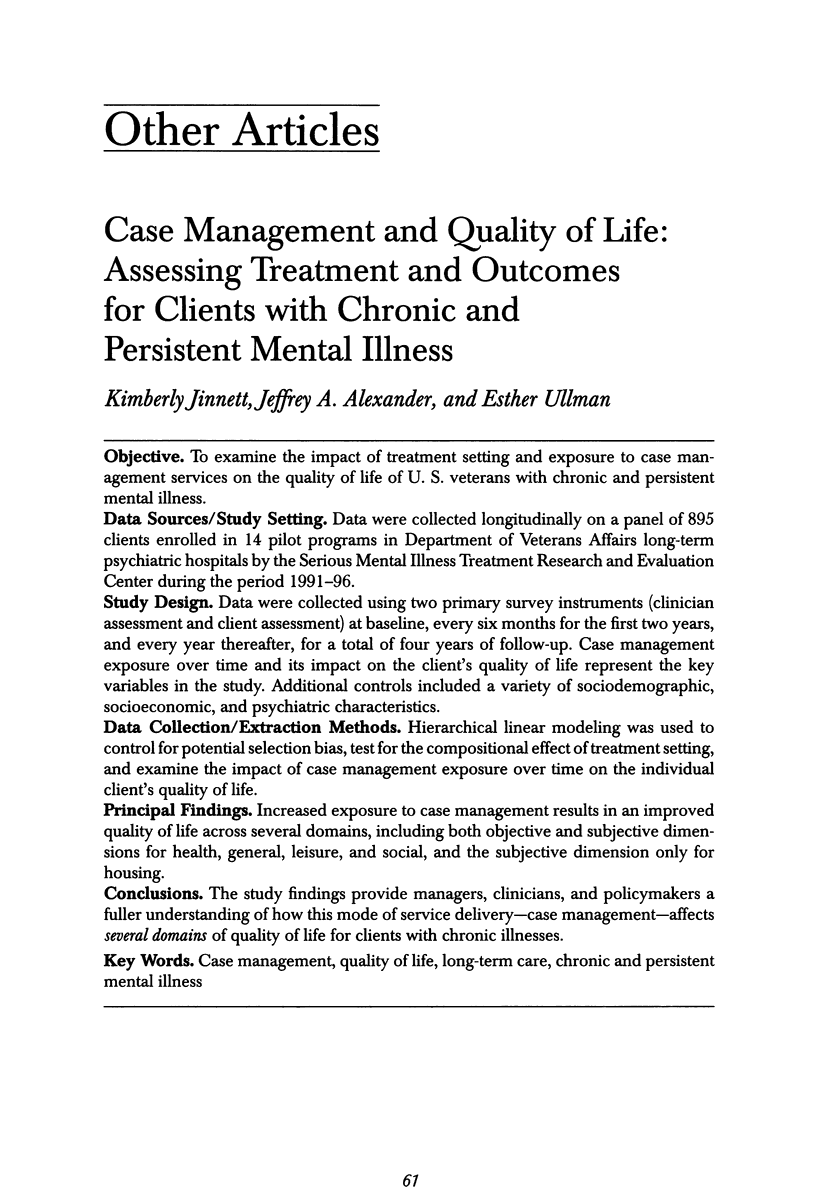
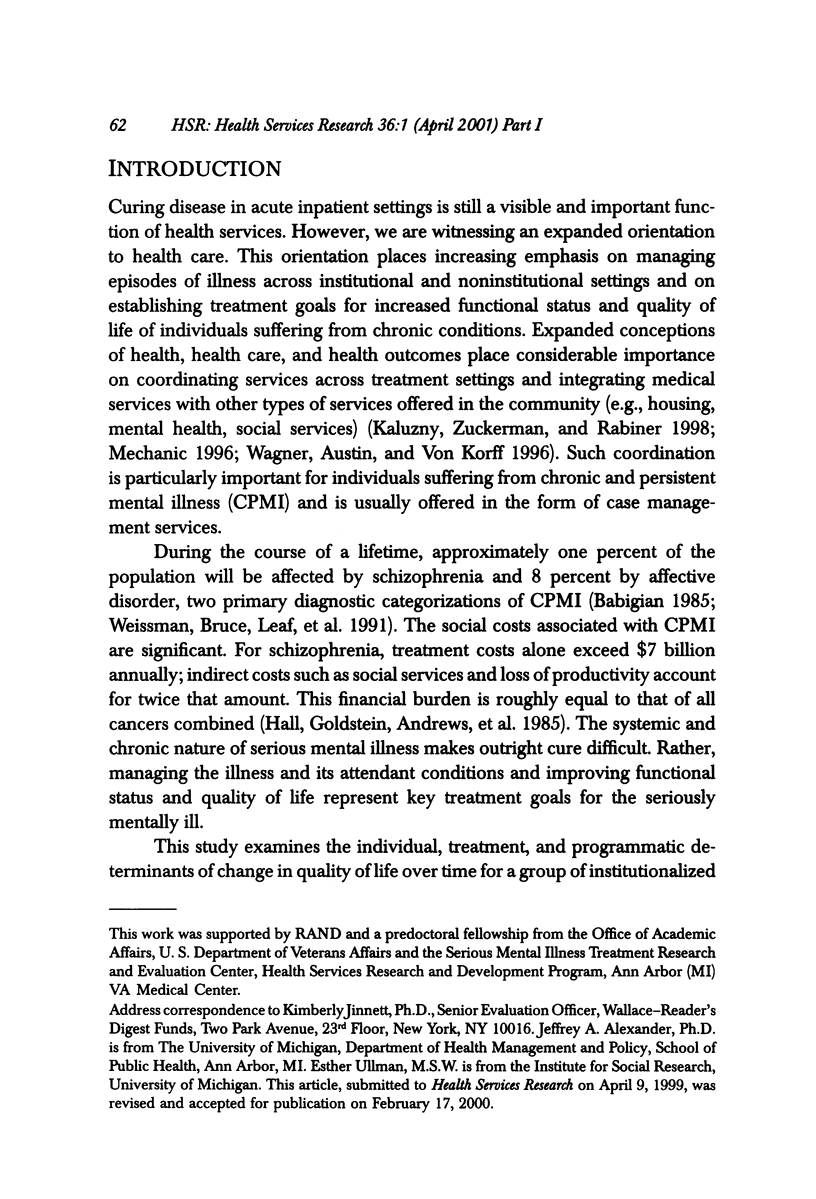
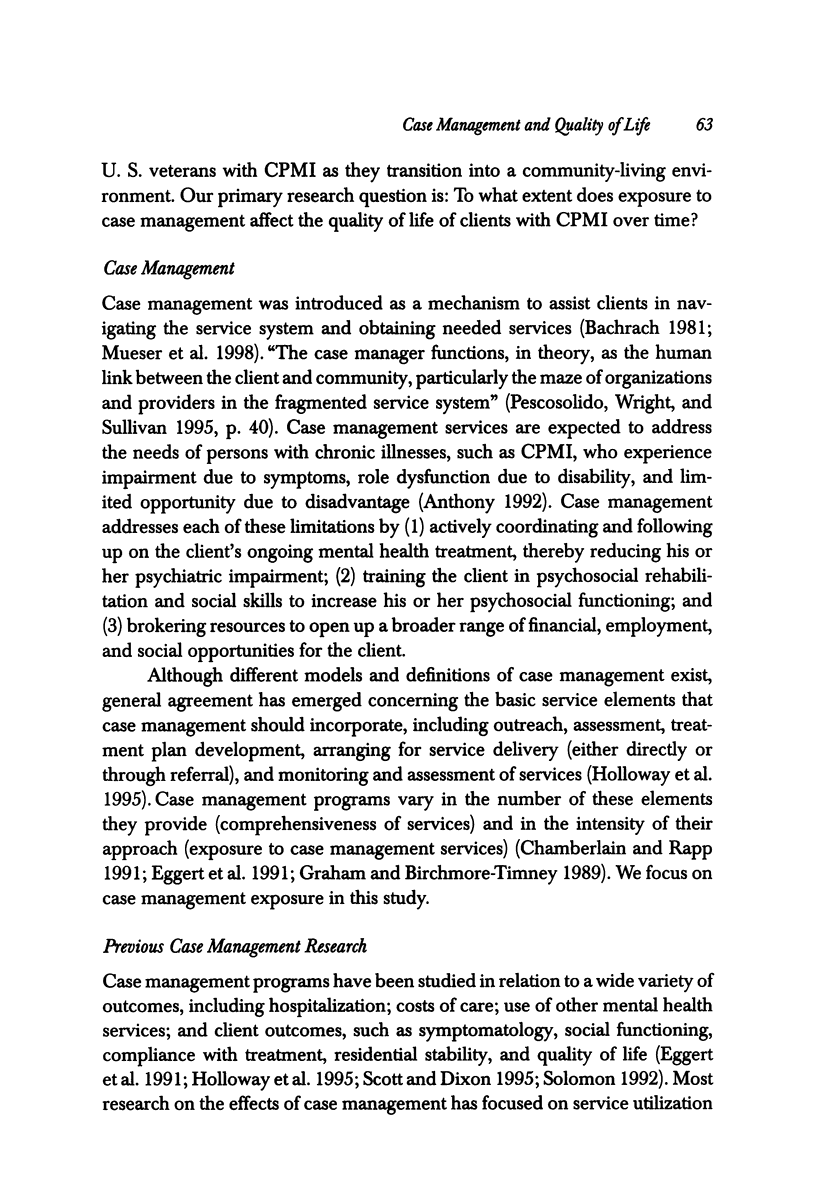
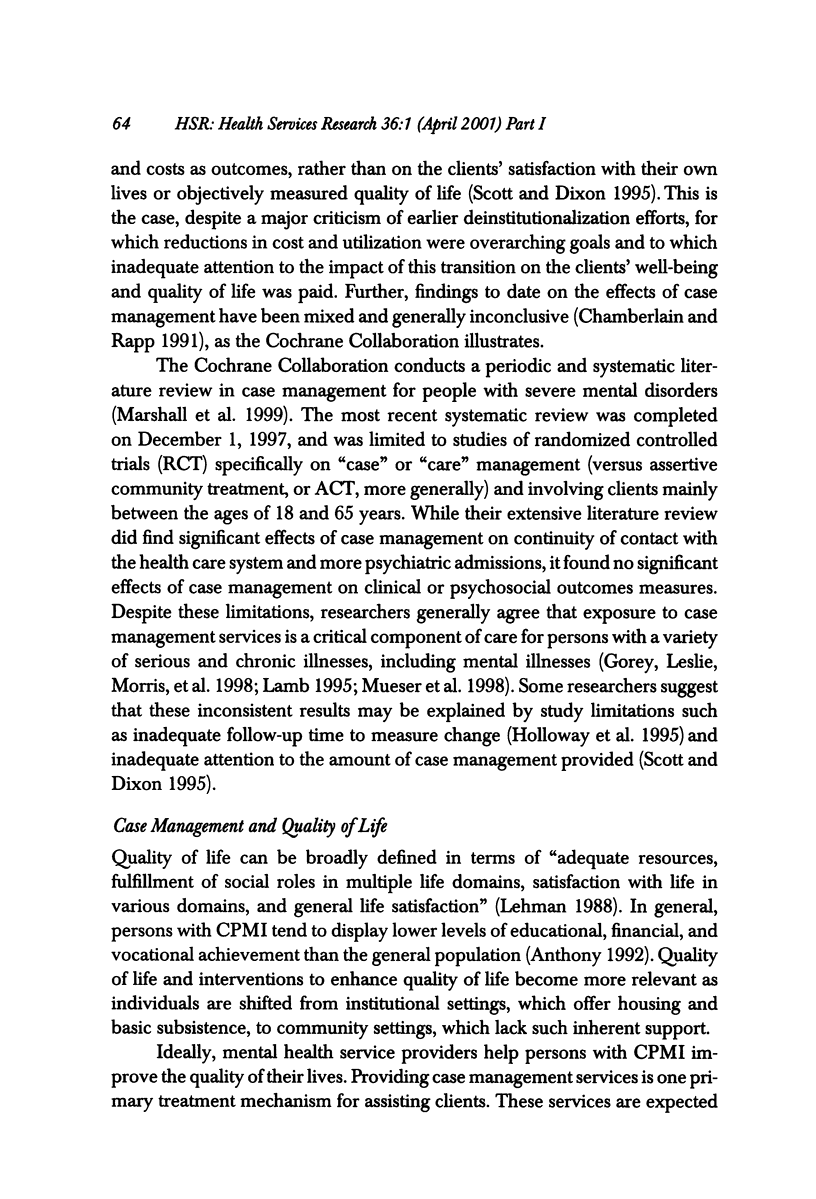
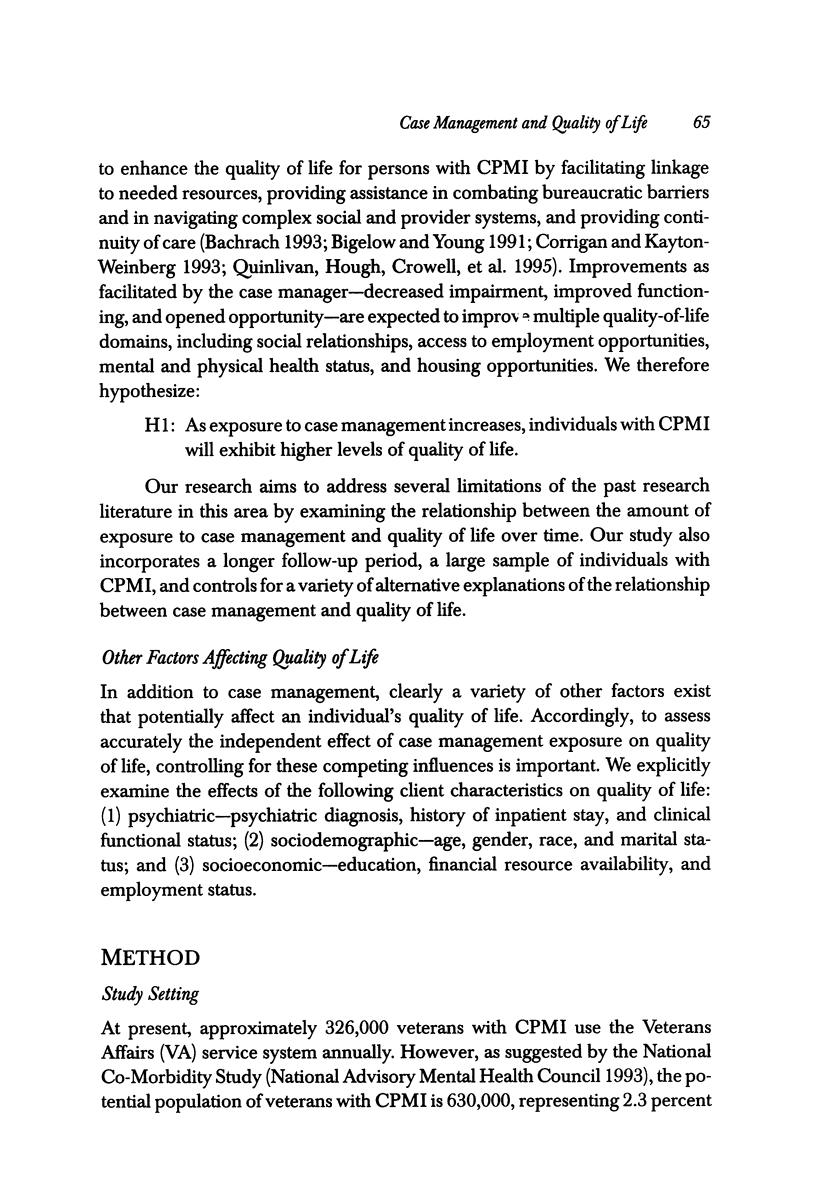
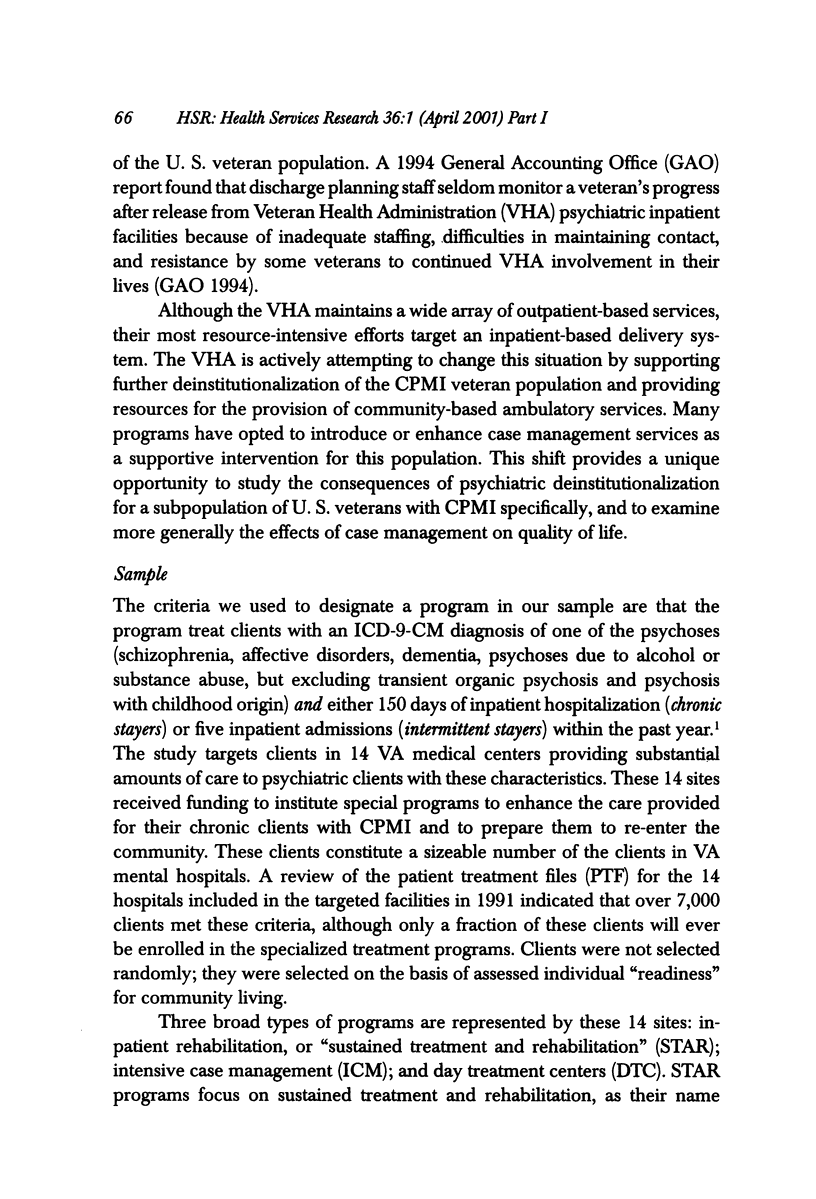
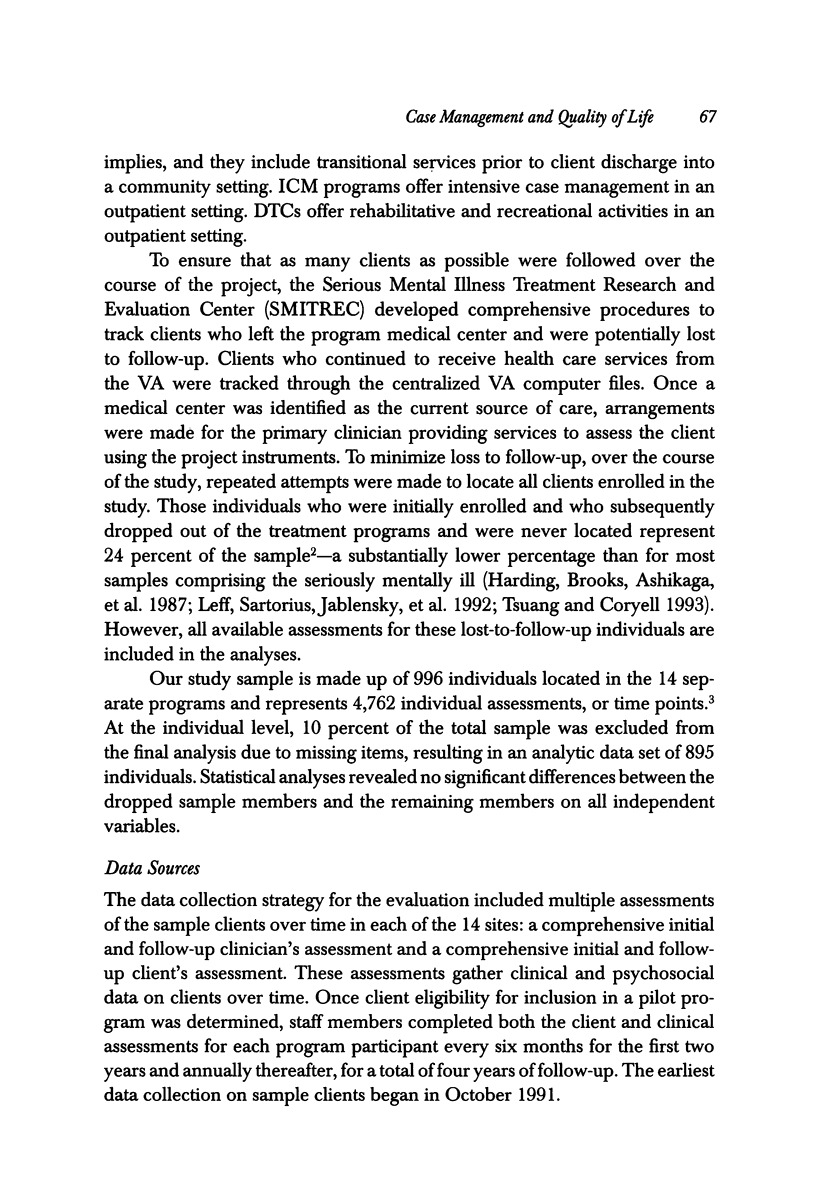
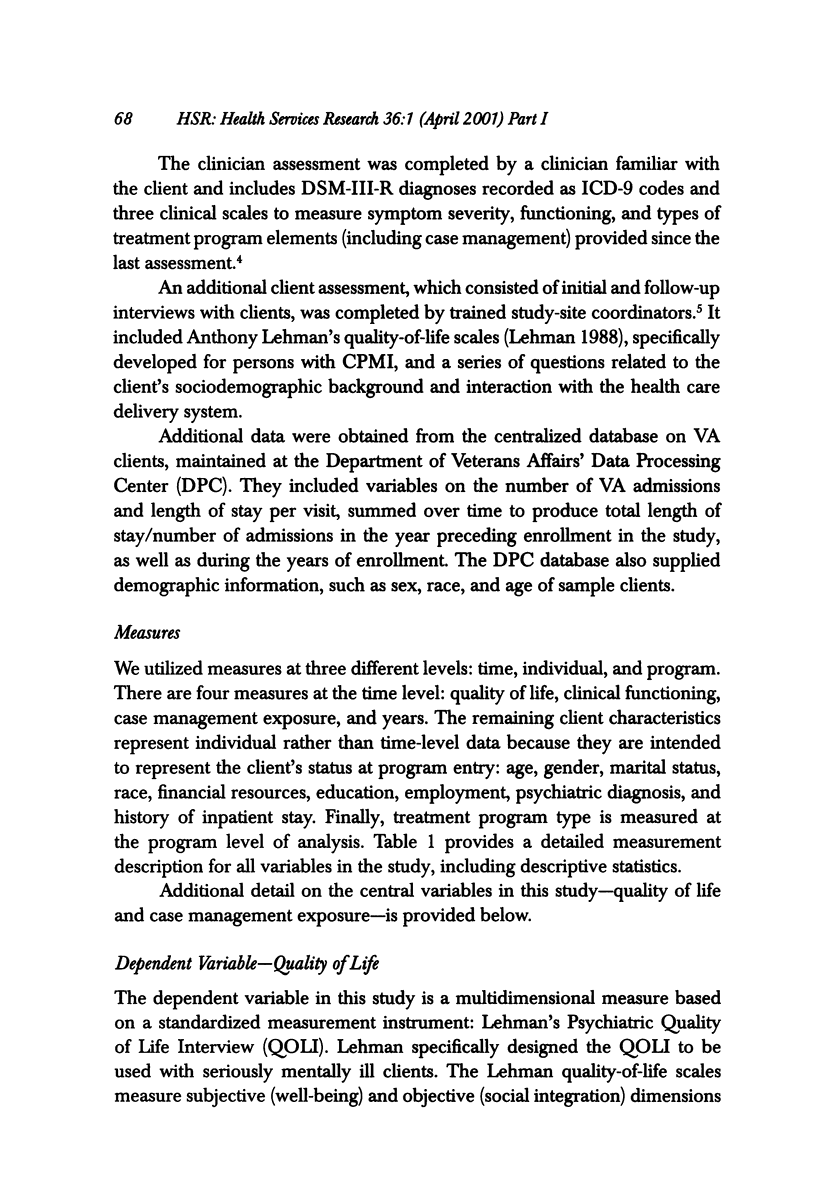
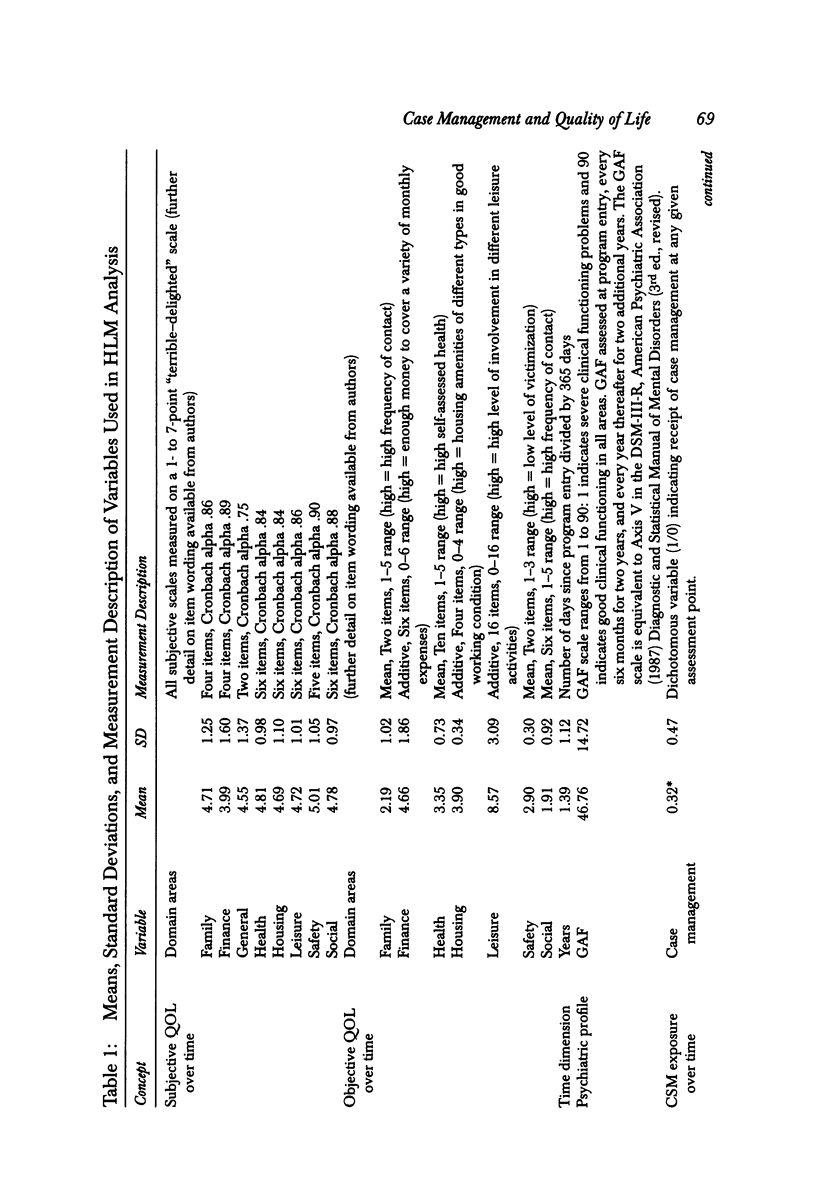
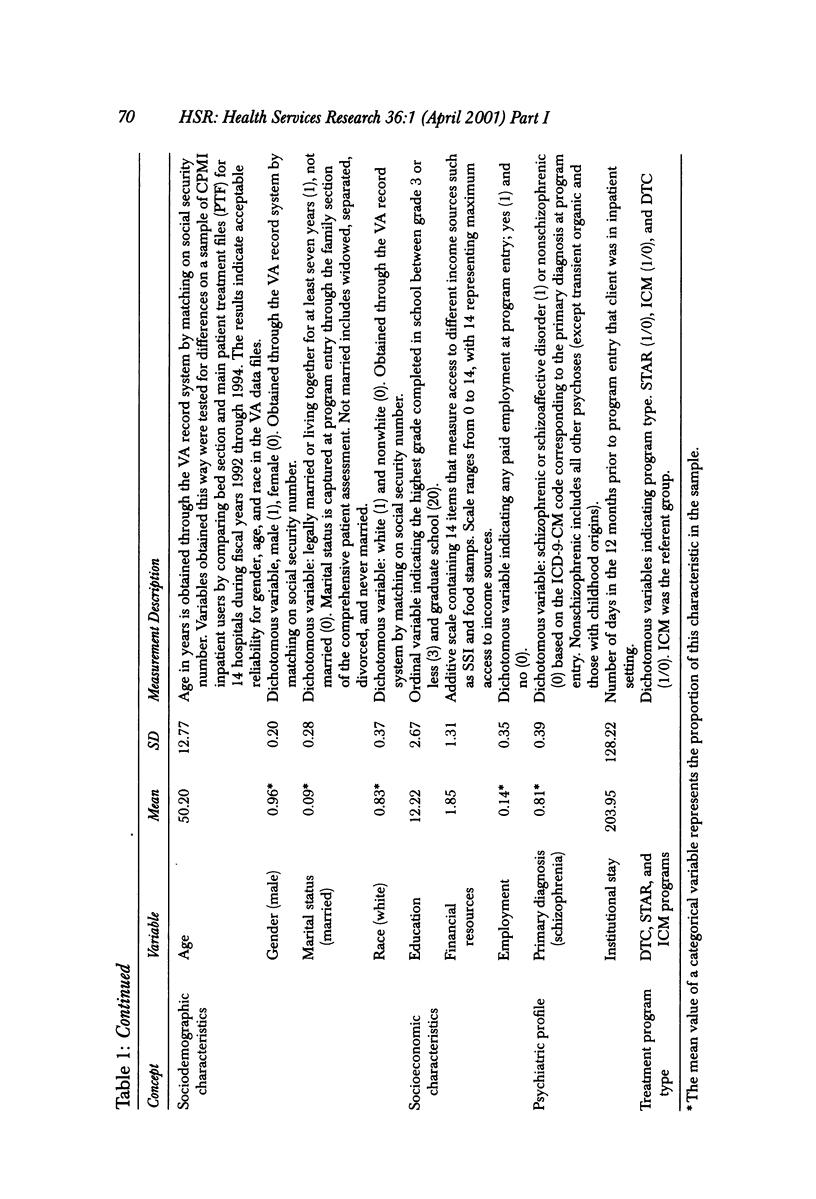
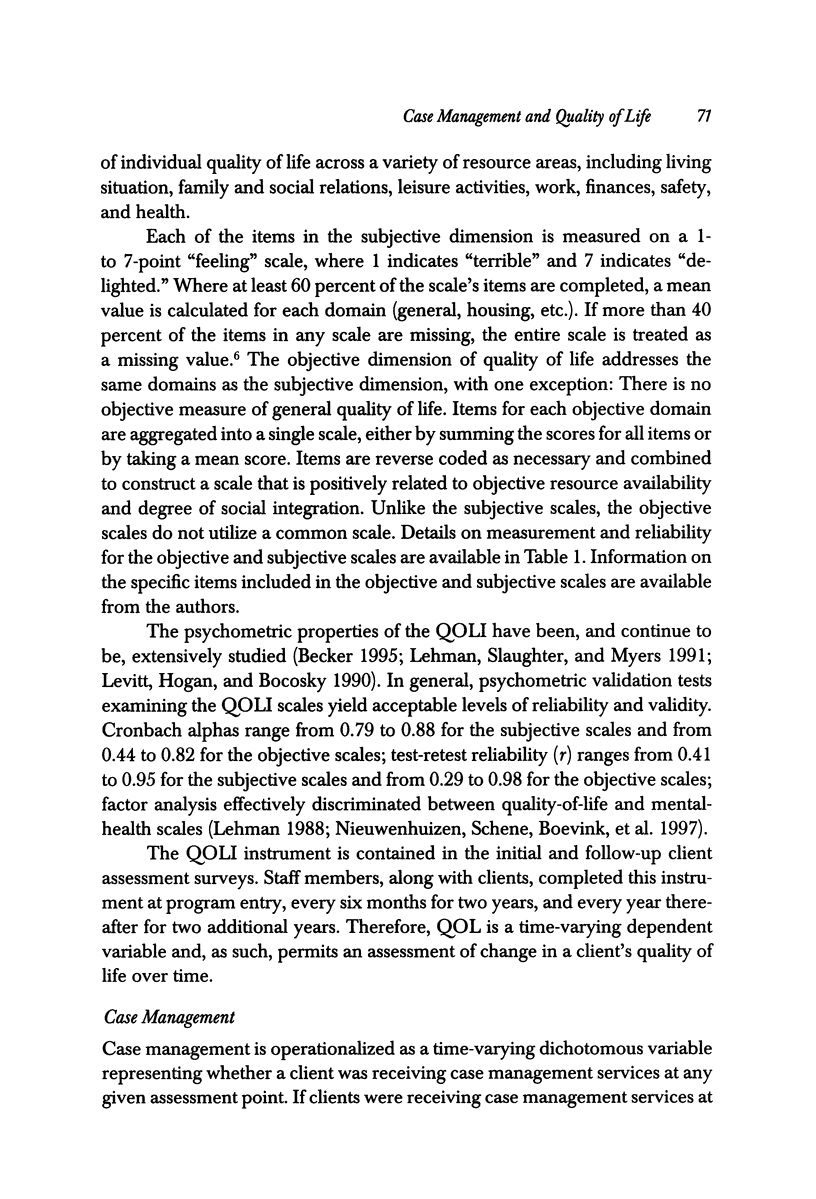
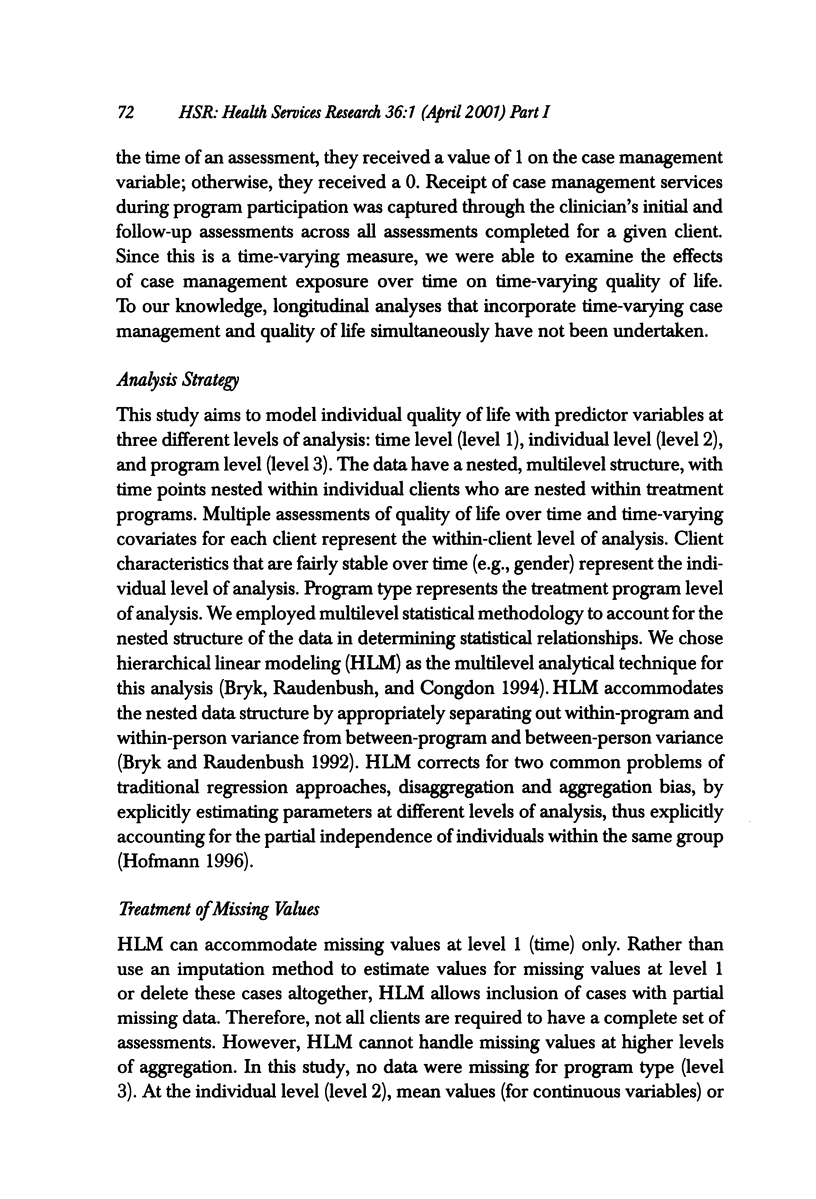
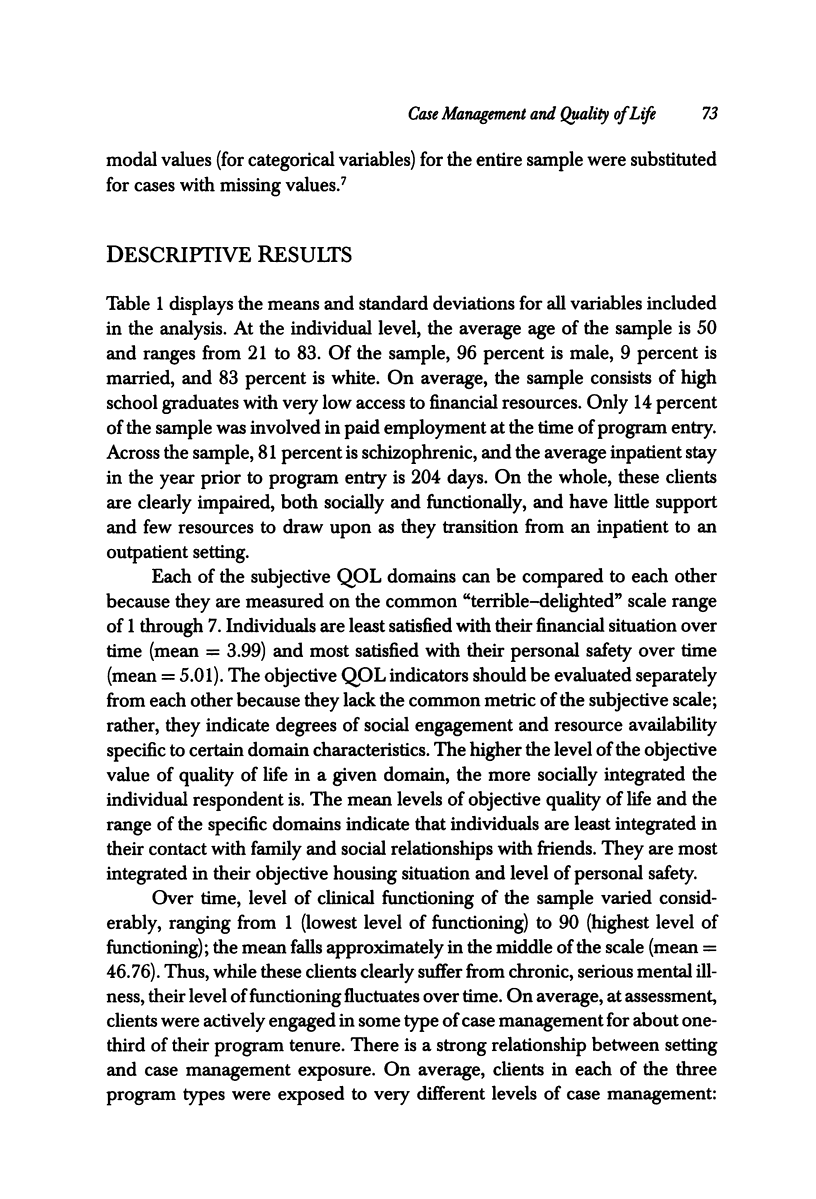
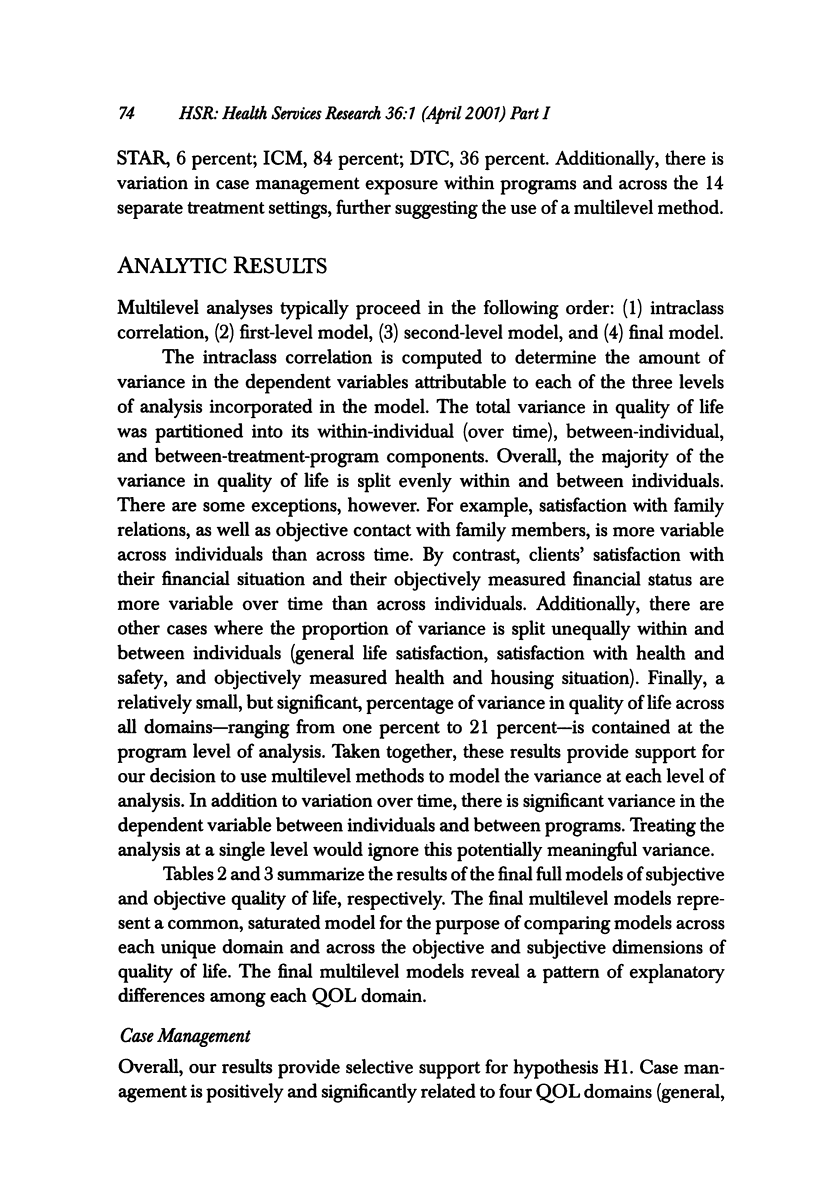
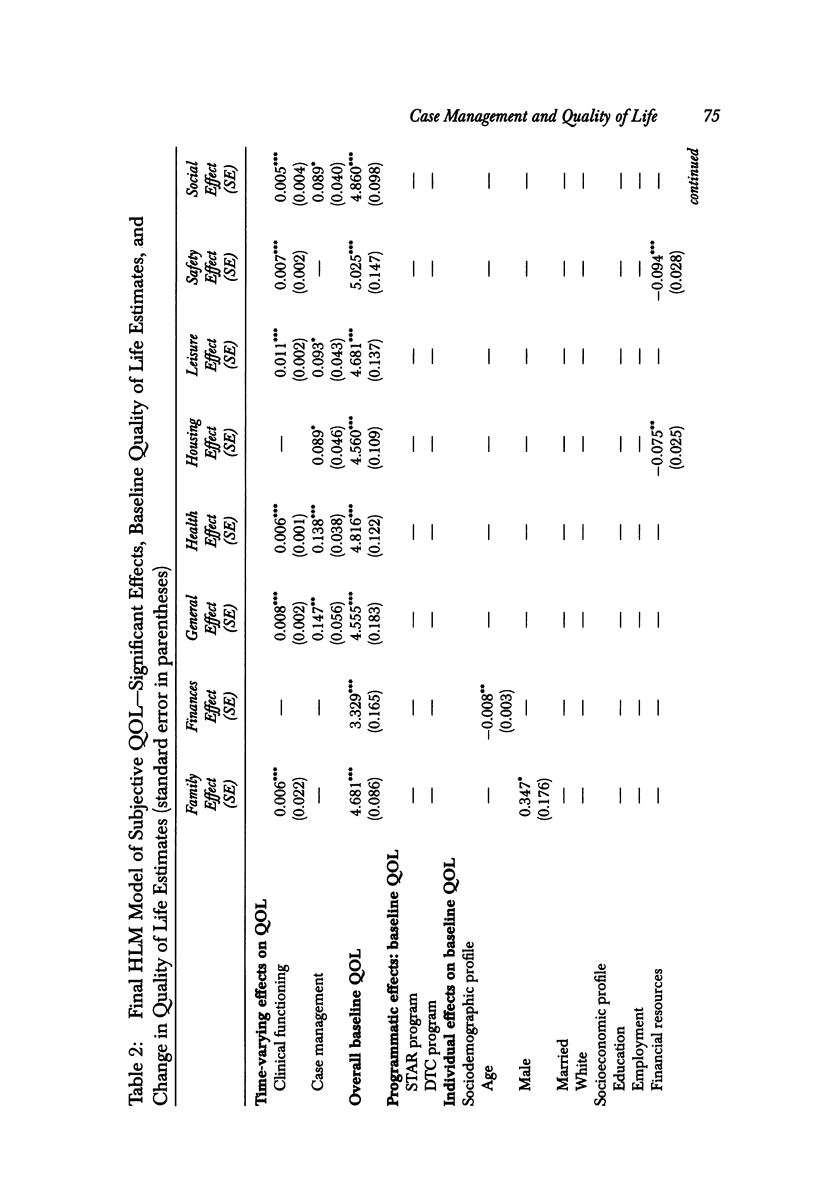
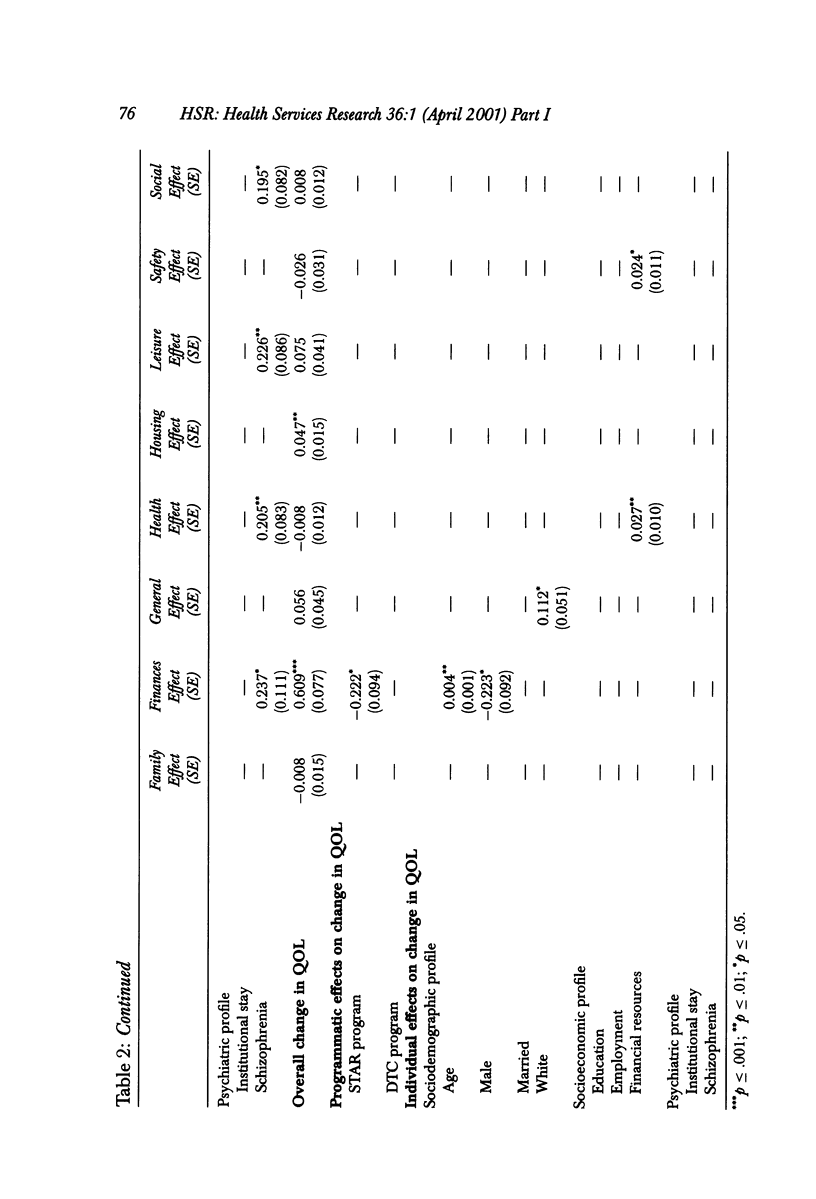
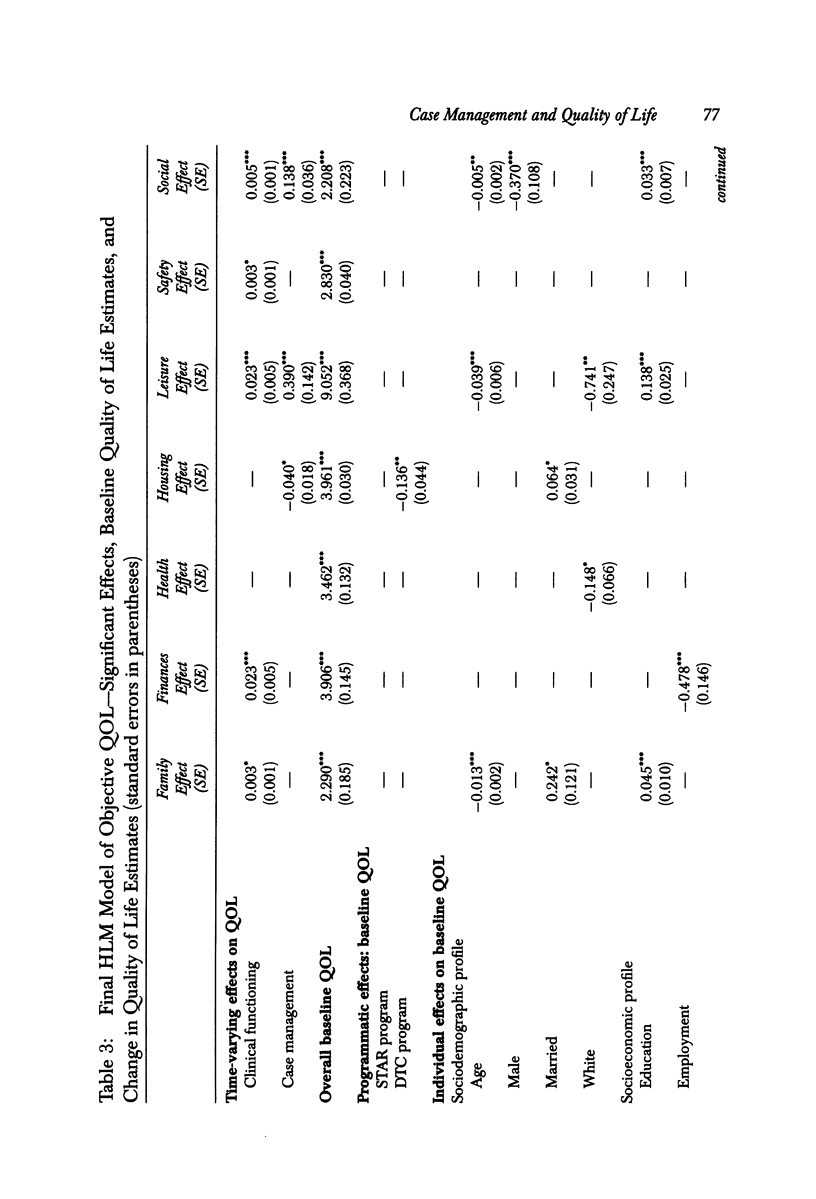
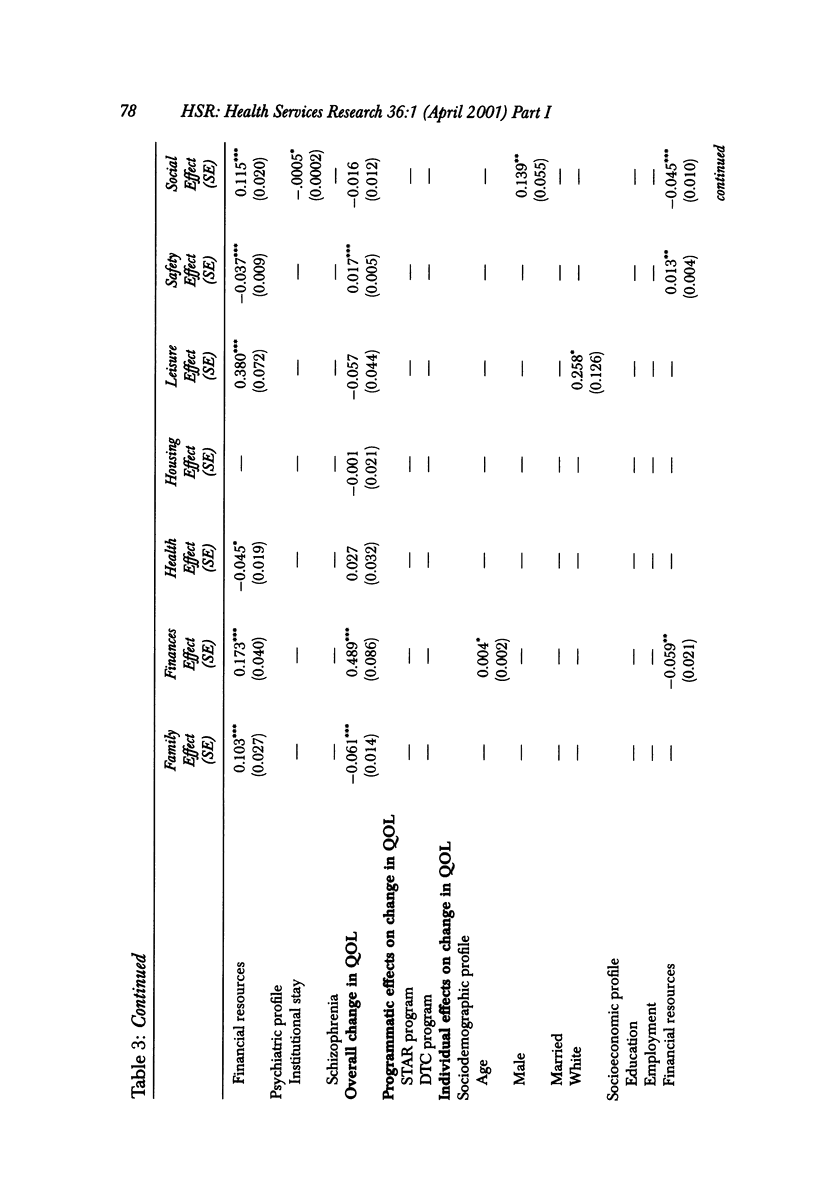
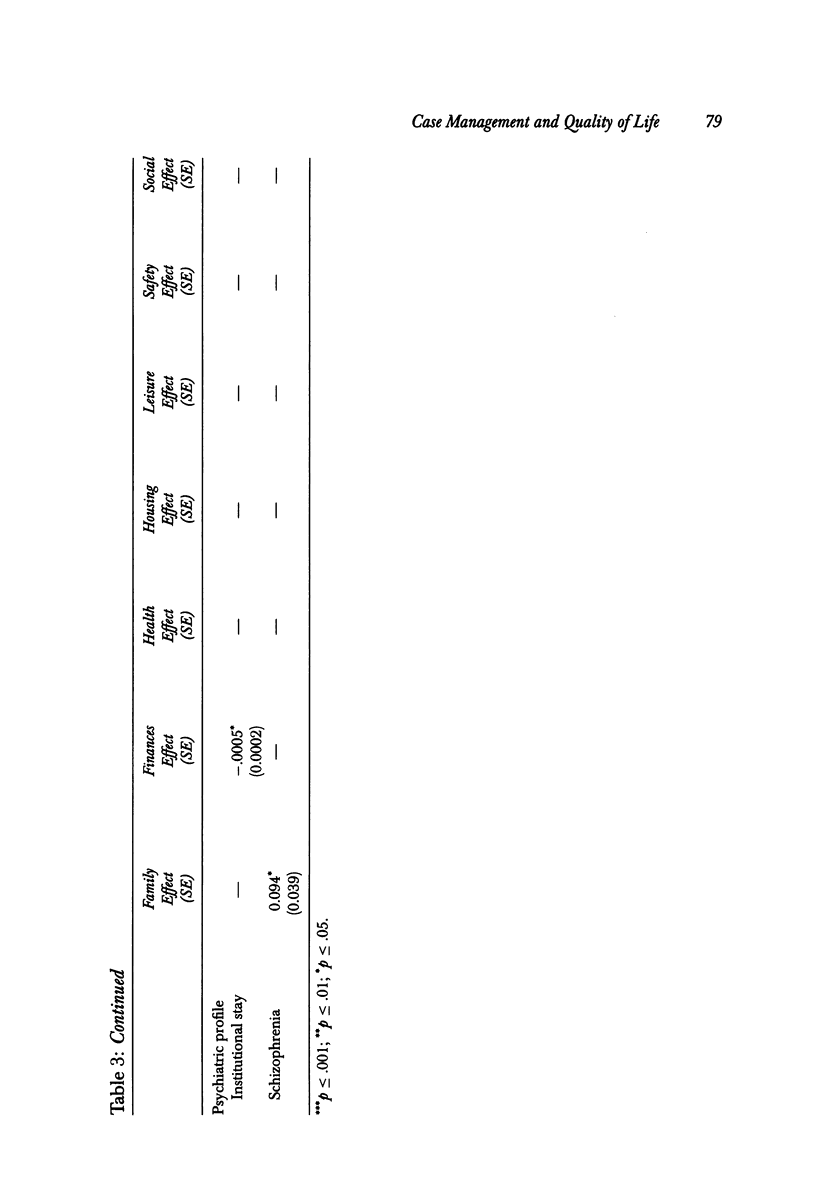
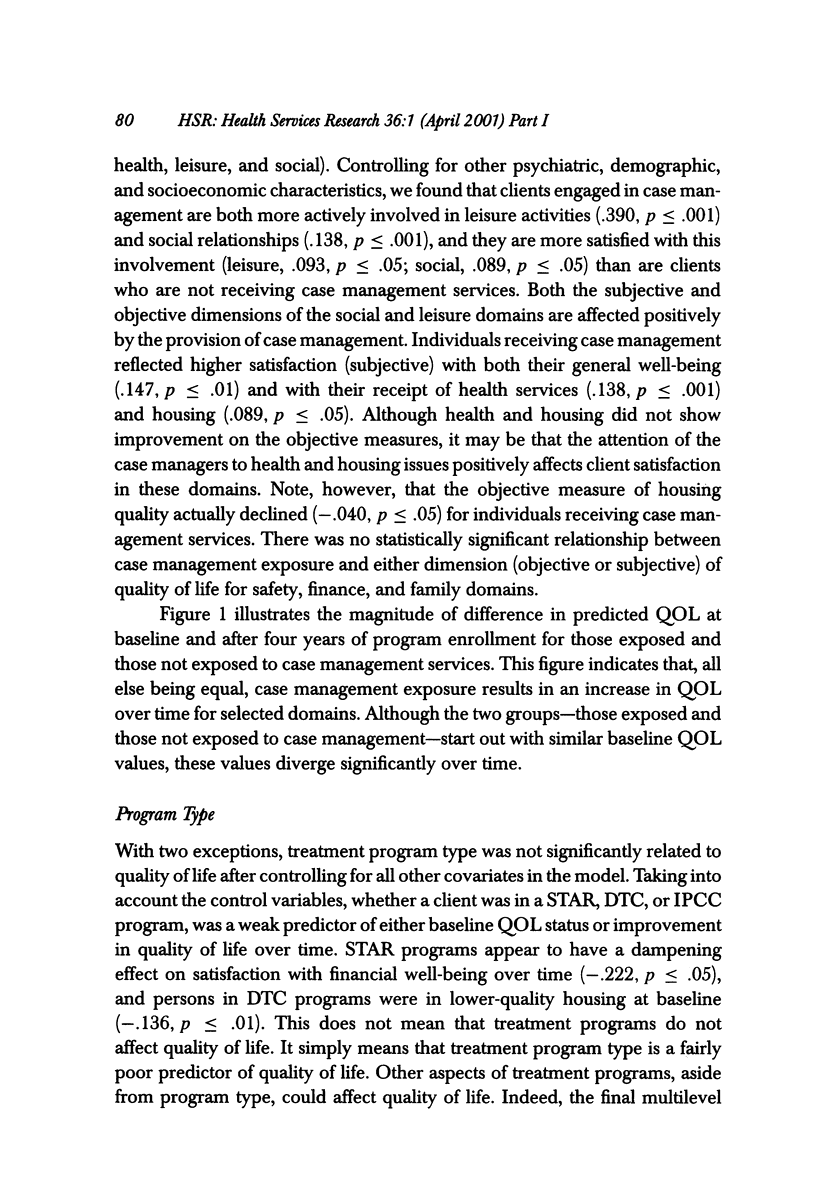
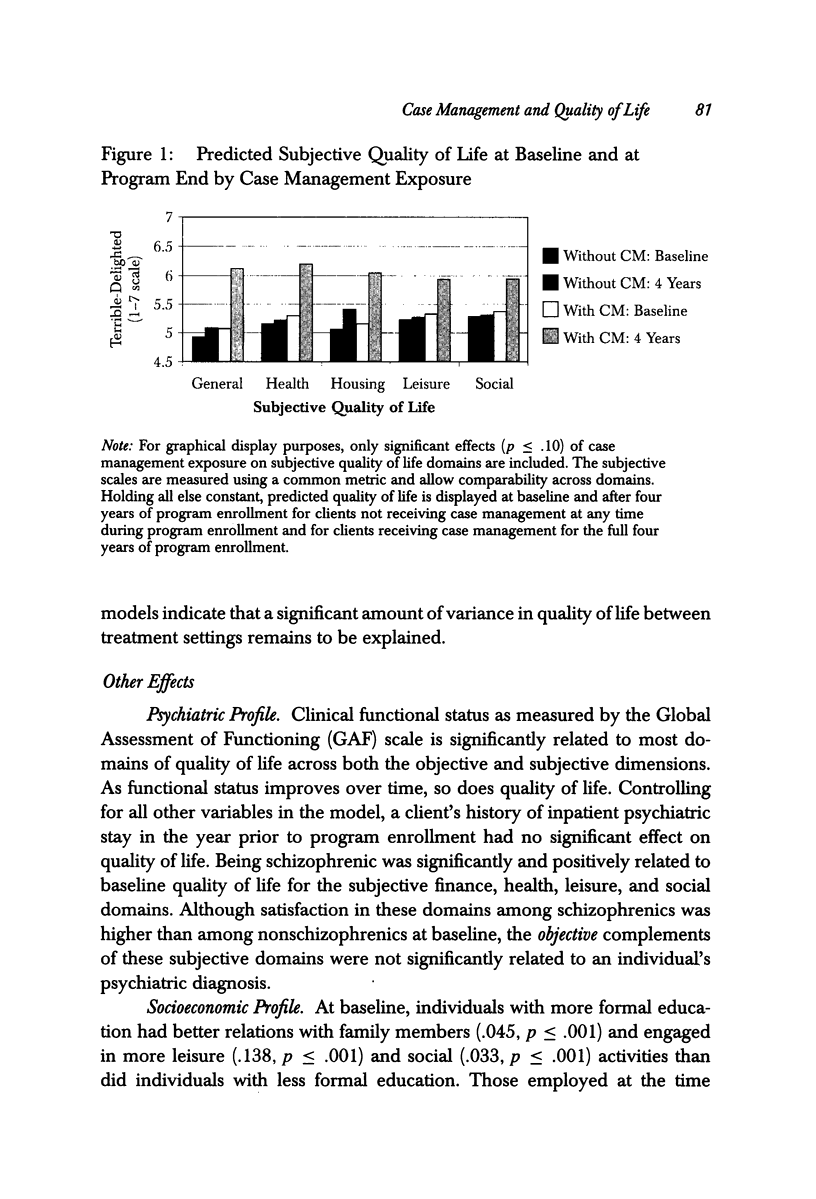
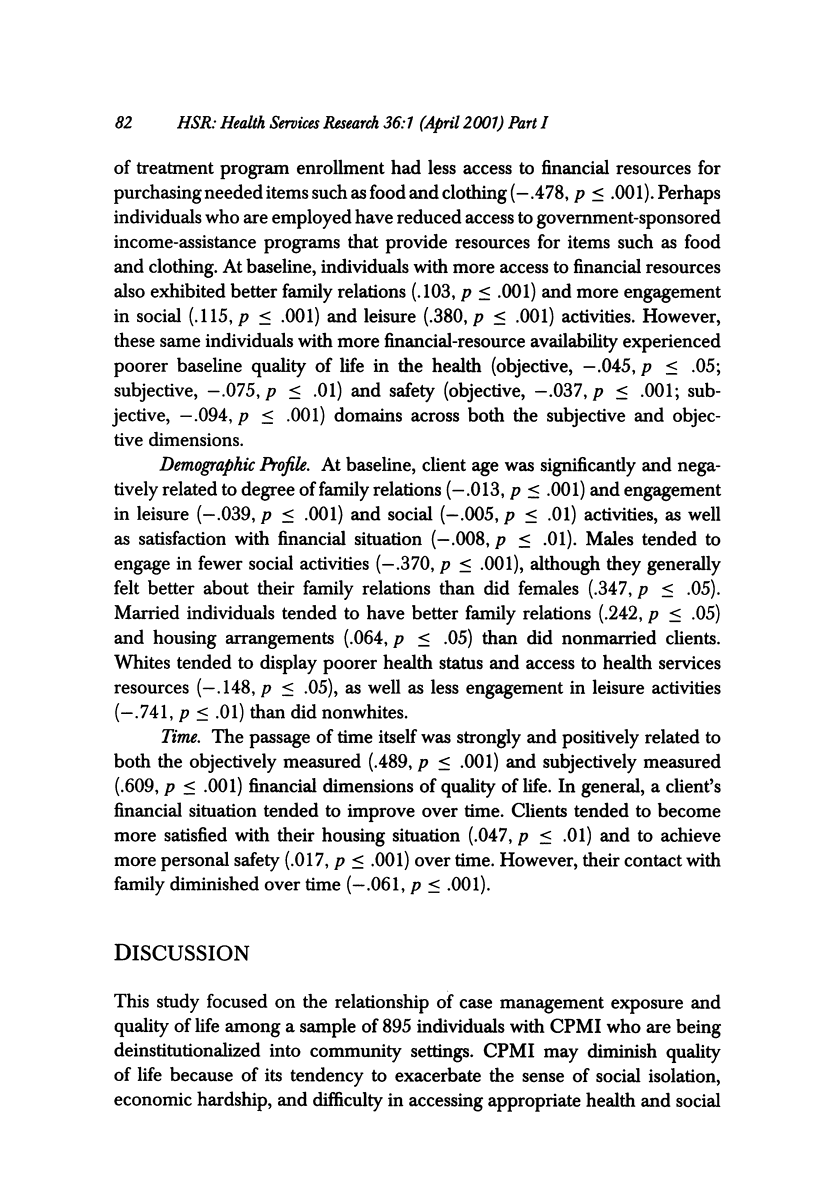
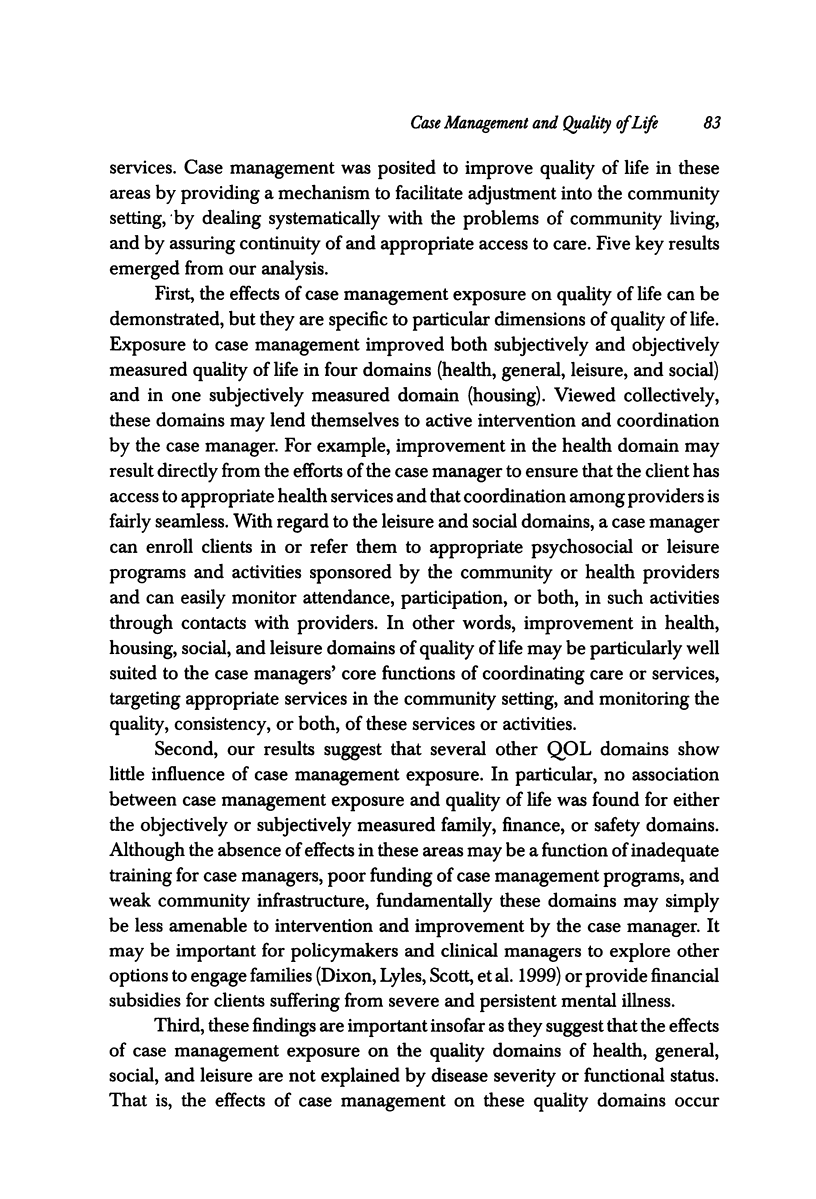
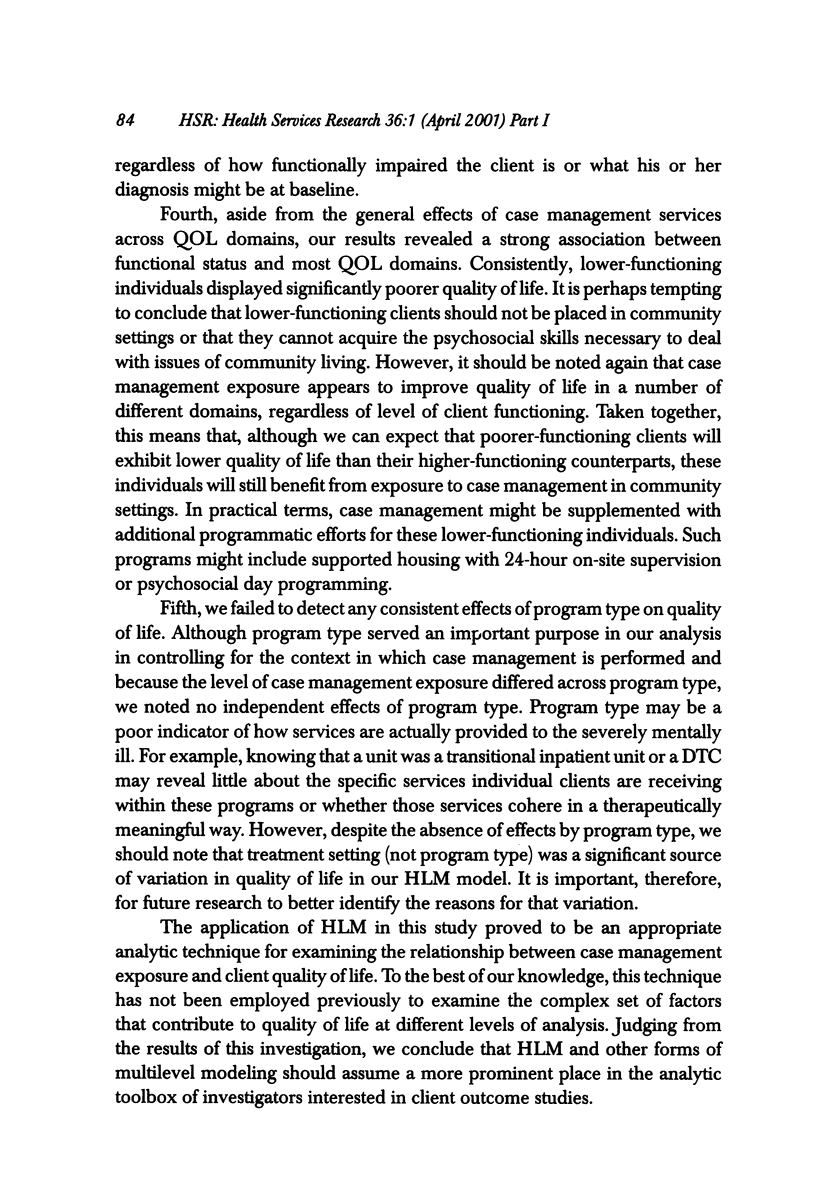
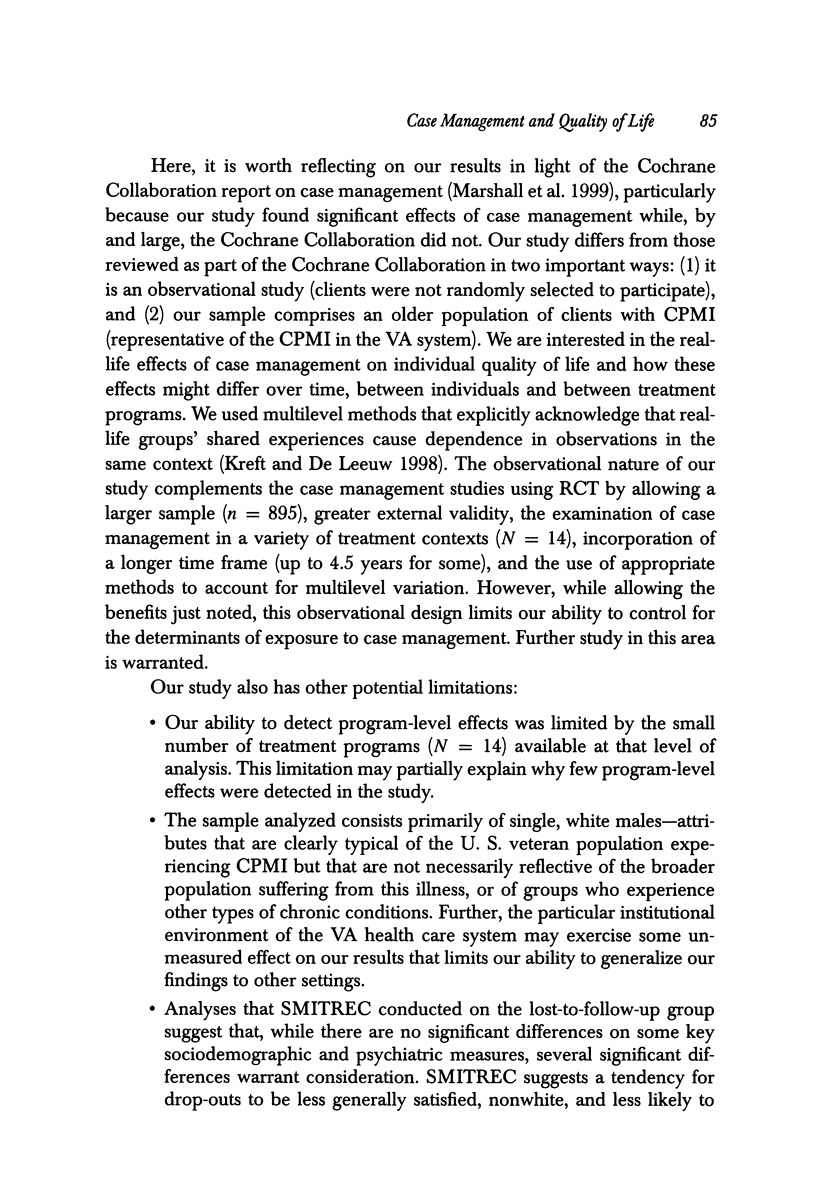
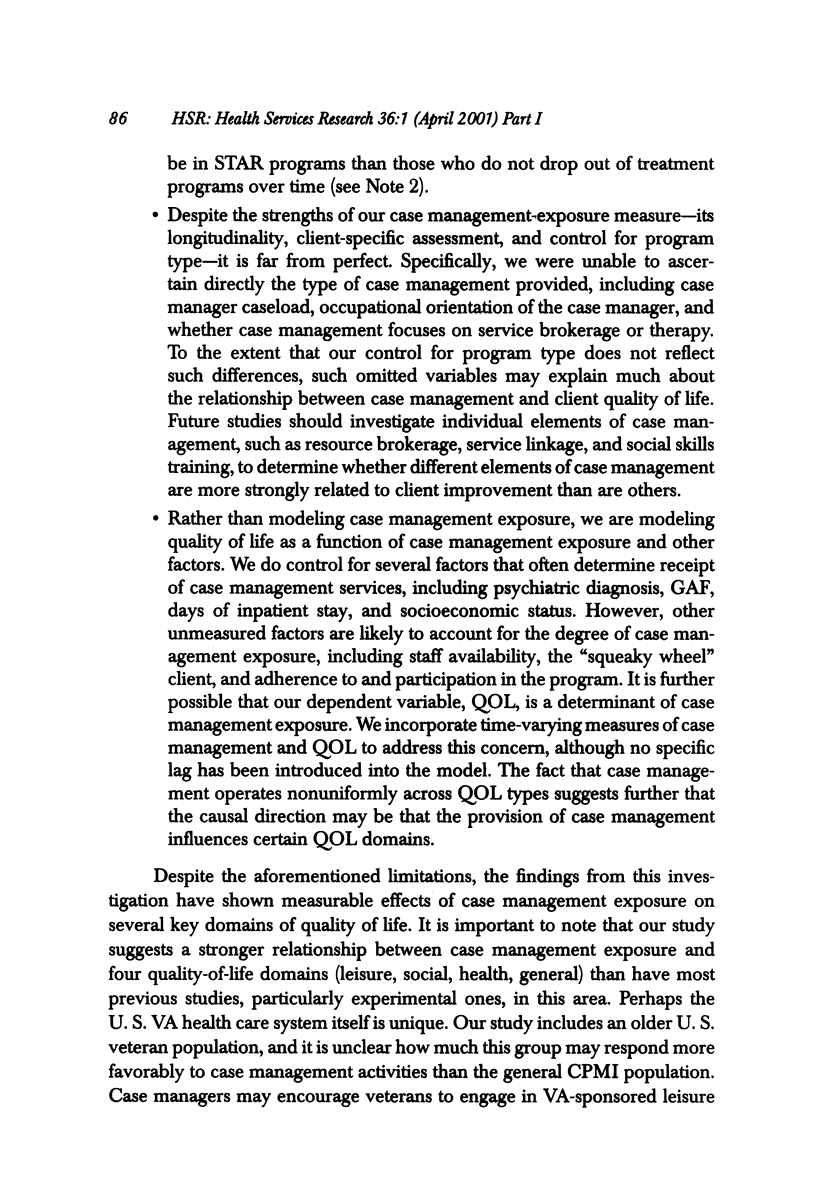
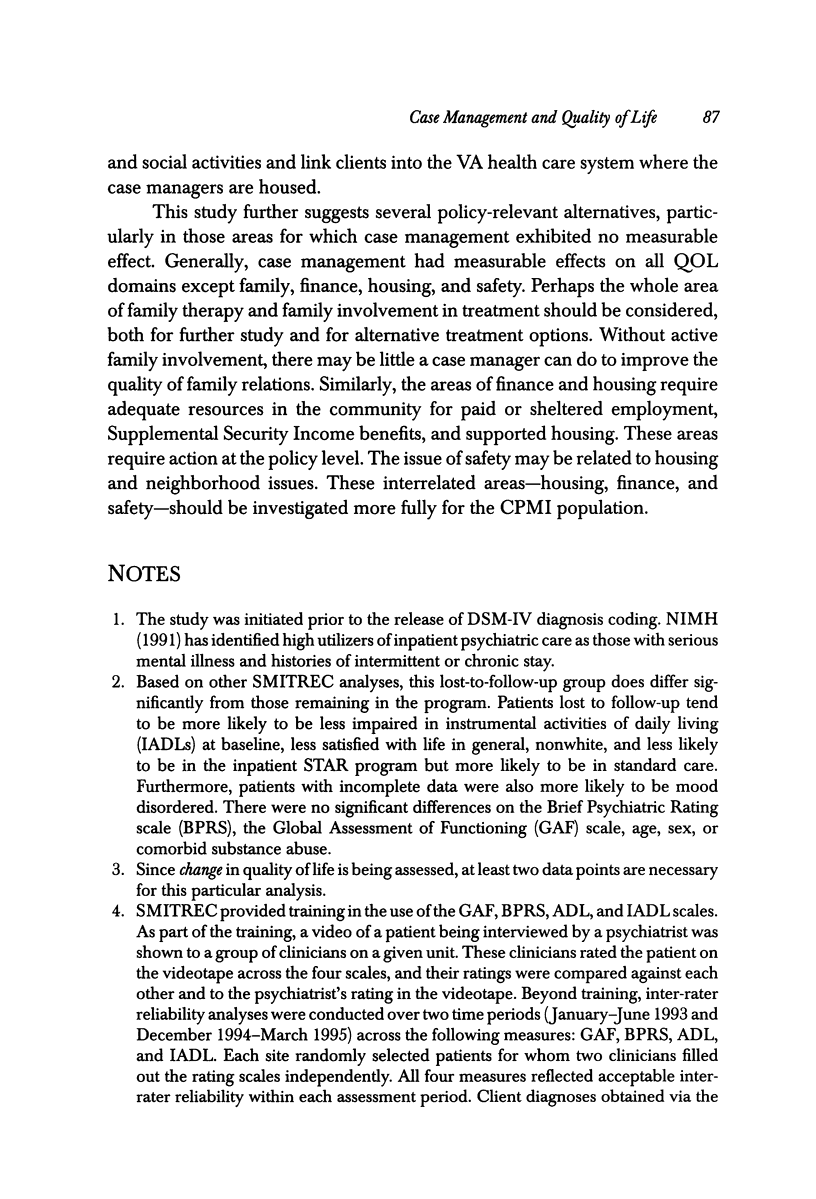
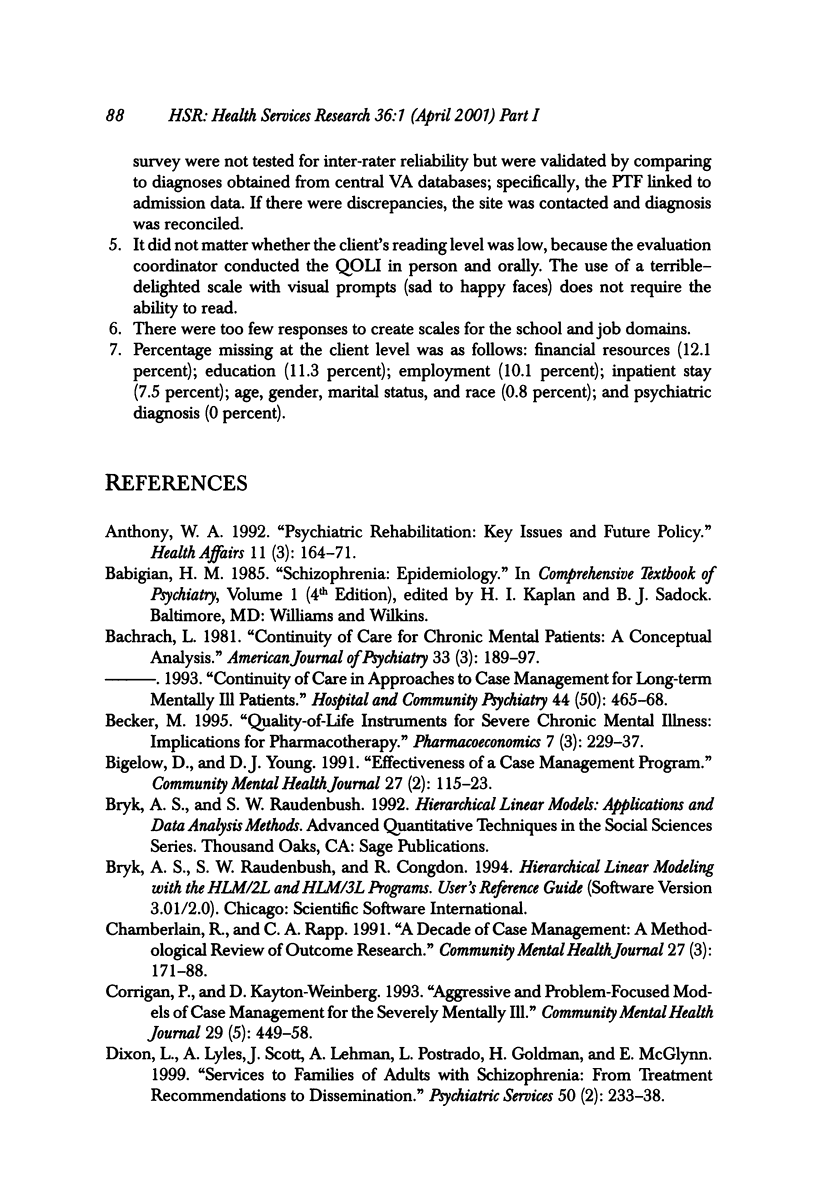
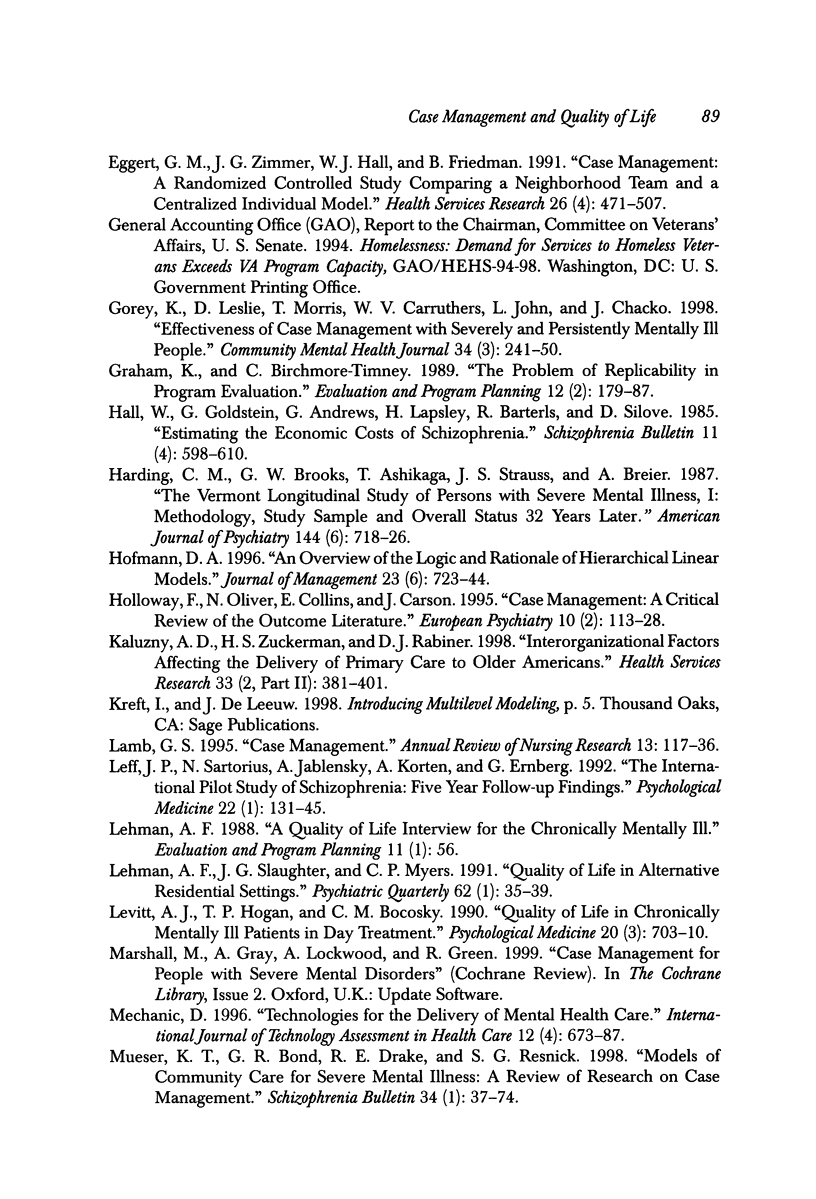
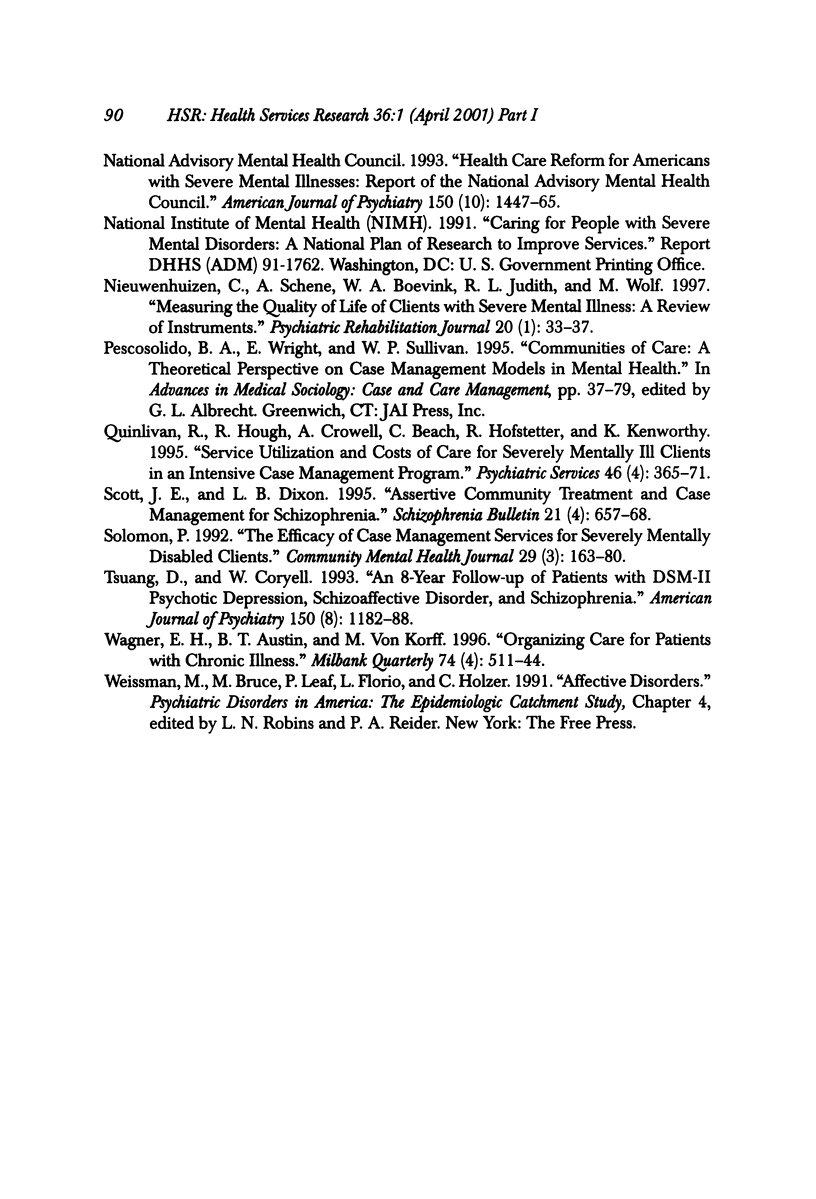
Images in this article
Selected References
These references are in PubMed. This may not be the complete list of references from this article.
- Anthony W. A. Psychiatric rehabilitation: key issues and future policy. Health Aff (Millwood) 1992 Fall;11(3):164–171. doi: 10.1377/hlthaff.11.3.164. [DOI] [PubMed] [Google Scholar]
- Becker M. Quality-of-life instruments for severe chronic mental illness. Implications for pharmacotherapy. Pharmacoeconomics. 1995 Mar;7(3):229–237. doi: 10.2165/00019053-199507030-00006. [DOI] [PubMed] [Google Scholar]
- Bigelow D. A., Young D. J. Effectiveness of a case management program. Community Ment Health J. 1991 Apr;27(2):115–123. doi: 10.1007/BF00752814. [DOI] [PubMed] [Google Scholar]
- Chamberlain R., Rapp C. A. A decade of case management: a methodological review of outcome research. Community Ment Health J. 1991 Jun;27(3):171–188. doi: 10.1007/BF00752419. [DOI] [PubMed] [Google Scholar]
- Corrigan P. W., Kayton-Weinberg D. "Aggressive" and "problem-focused" models of case management for the severely mentally ill. Community Ment Health J. 1993 Oct;29(5):449–458. doi: 10.1007/BF00754413. [DOI] [PubMed] [Google Scholar]
- Dixon L., Lyles A., Scott J., Lehman A., Postrado L., Goldman H., McGlynn E. Services to families of adults with schizophrenia: from treatment recommendations to dissemination. Psychiatr Serv. 1999 Feb;50(2):233–238. doi: 10.1176/ps.50.2.233. [DOI] [PubMed] [Google Scholar]
- Eggert G. M., Zimmer J. G., Hall W. J., Friedman B. Case management: a randomized controlled study comparing a neighborhood team and a centralized individual model. Health Serv Res. 1991 Oct;26(4):471–507. [PMC free article] [PubMed] [Google Scholar]
- Gorey K. M., Leslie D. R., Morris T., Carruthers W. V., John L., Chacko J. Effectiveness of case management with severely and persistently mentally ill people. Community Ment Health J. 1998 Jun;34(3):241–250. doi: 10.1023/a:1018761623212. [DOI] [PubMed] [Google Scholar]
- Graham K., Birchmore-Timney C. The problem of replicability in program evaluation. The component solution using the example of case management. Eval Program Plann. 1989;12(2):179–187. doi: 10.1016/0149-7189(89)90009-8. [DOI] [PubMed] [Google Scholar]
- Hall W., Goldstein G., Andrews G., Lapsley H., Bartels R., Silove D. Estimating the economic costs of schizophrenia. Schizophr Bull. 1985;11(4):598–610. doi: 10.1093/schbul/11.4.598. [DOI] [PubMed] [Google Scholar]
- Harding C. M., Brooks G. W., Ashikaga T., Strauss J. S., Breier A. The Vermont longitudinal study of persons with severe mental illness, I: Methodology, study sample, and overall status 32 years later. Am J Psychiatry. 1987 Jun;144(6):718–726. doi: 10.1176/ajp.144.6.718. [DOI] [PubMed] [Google Scholar]
- Kaluzny A. D., Zuckerman H. S., Rabiner D. J. Interorganizational factors affecting the delivery of primary care to older Americans. Health Serv Res. 1998 Jun;33(2 Pt 2):381–401. [PMC free article] [PubMed] [Google Scholar]
- Leff J., Sartorius N., Jablensky A., Korten A., Ernberg G. The International Pilot Study of Schizophrenia: five-year follow-up findings. Psychol Med. 1992 Feb;22(1):131–145. doi: 10.1017/s0033291700032797. [DOI] [PubMed] [Google Scholar]
- Lehman A. F., Slaughter J. G., Myers C. P. Quality of life in alternative residential settings. Psychiatr Q. 1991 Spring;62(1):35–49. doi: 10.1007/BF01958837. [DOI] [PubMed] [Google Scholar]
- Levitt A. J., Hogan T. P., Bucosky C. M. Quality of life in chronically mentally ill patients in day treatment. Psychol Med. 1990 Aug;20(3):703–710. doi: 10.1017/s0033291700017220. [DOI] [PubMed] [Google Scholar]
- Mechanic D. Technologies for the delivery of mental health care. Int J Technol Assess Health Care. 1996 Fall;12(4):673–687. doi: 10.1017/s0266462300010965. [DOI] [PubMed] [Google Scholar]
- Mueser K. T., Bond G. R., Drake R. E., Resnick S. G. Models of community care for severe mental illness: a review of research on case management. Schizophr Bull. 1998;24(1):37–74. doi: 10.1093/oxfordjournals.schbul.a033314. [DOI] [PubMed] [Google Scholar]
- Quinlivan R., Hough R., Crowell A., Beach C., Hofstetter R., Kenworthy K. Service utilization and costs of care for severely mentally ill clients in an intensive case management program. Psychiatr Serv. 1995 Apr;46(4):365–371. doi: 10.1176/ps.46.4.365. [DOI] [PubMed] [Google Scholar]
- Scott J. E., Dixon L. B. Assertive community treatment and case management for schizophrenia. Schizophr Bull. 1995;21(4):657–668. doi: 10.1093/schbul/21.4.657. [DOI] [PubMed] [Google Scholar]
- Tsuang D., Coryell W. An 8-year follow-up of patients with DSM-III-R psychotic depression, schizoaffective disorder, and schizophrenia. Am J Psychiatry. 1993 Aug;150(8):1182–1188. doi: 10.1176/ajp.150.8.1182. [DOI] [PubMed] [Google Scholar]
- Wagner E. H., Austin B. T., Von Korff M. Organizing care for patients with chronic illness. Milbank Q. 1996;74(4):511–544. [PubMed] [Google Scholar]



